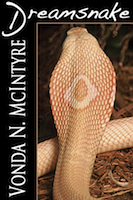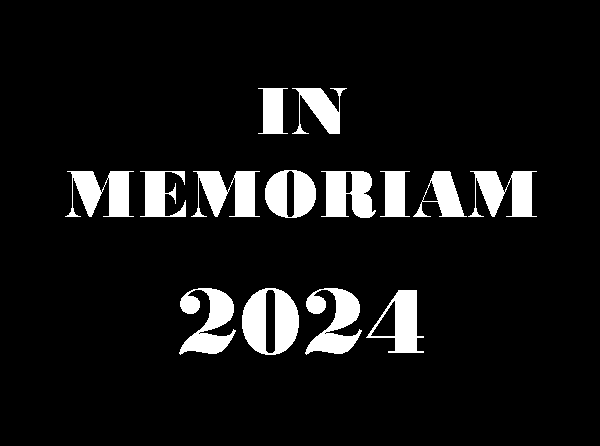Chain Mail is a telephone tag by email round-robin interview session with authors from the Book View Cafe writers collective. Images are links, connecting to biographical information about an author or more information on their current work. Additional information can be found on the contributors page.
Amazing Stories: Recently there has been an uptick in the number of “sub-genres” related to the field. Where before there was just “science fiction”, that split into ‘space opera’, ‘hard’ and ‘new wave’ during the late 50s/early 60s, now there’s — science fiction romance, western sf, post-apocalyptic, slipstream, alternate reality — the list goes on. Is it helpful to have all of these sub-categorizations (allowing readers to find what they really want) or detrimental by pigeonholing work and placing impediments between a reader and the discovery of new types of works?

JENNIFER STEVENSON
The sky is not falling.
If you want to find the kind of story you like to read, and you’re looking online, you have to have the sub-categories.
Thirty years ago it was possible to read every single book published by all the publishers in the SF/F genres, every year. That hasn’t been possible for decades. There have been just too many titles!
The sub-categories (or tags, as they’re called in metadata) do via search what you used to do in a brick-and-mortar bookstore when you browsed through the new cover-out titles. In the bookstore, one glance at the cover art told you whether it was your favorite genre, or the one that made you say, “Bleah, I pass.” You could look at a whole shelf of covers and make those decisions without much conscious thought.
We don’t consider how fast the human eye and our decision-making brain cells work until we have to rely on search engines to approximate them.
Brick-and-mortar stores are hard to find right now. Publishers are putting out fewer titles in print (paper books) right now. The ebook market is loaded with far, far more titles than it ever was before, and there doesn’t seem to be a limit to that…right now. These changes change our habits, our opportunities, the landscape.
That said, there may be a limit to how many books in a specific sub-category a given reader can hoover up. (And we’re all book hoovers, aren’t we?) Once we’ve exhausted our favorite genre, we either move on to a new one, or we reread the old stuff.
Which is what we’ve been doing for years anyway.
No, the sky is not falling.
If I were addressing this to writers, not readers, I would be talking about how to sell books in the new environment. Whole different slant, but same message. The sky is not falling.
![]()
MAYA KAATHRYN BOHNHOFF
I’m with Jen. I don’t think this is such a big deal as long as no one takes these sub-genres as holy writ. I think they’re a natural outgrowth of writers exploring different aspects of the major genres. I don’t think about what genre a story is, really, until I’ve finished writing it, then I look for someplace to put it. As a result I have stories and novels that refuse to color inside the lines. There are elements of fantasy and SF in TACO DEL & AND THE FABLED TREE OF DESTINY (Book View Press) and MAGIC TIME: ANGELFIRE (Harper-Eps) but in quite different ways.
But as natural as that seems to me, I know it throws some people for a loop. I’ve heard readers comment bemusedly on the mystery elements in an SF or fantasy novel, yet that’s become almost a sub-genre of its own. Seanan McGuire writes what most people call urban fantasy, but I file it under mystery-thriller on my iPad. Ditto with Jim Butcher who is considered supernatural detective lit. That’s the beauty of online bookstores. You can find your books with searches on genre or title or author, or browse the virtual stacks reading cover copy—which is what makes me buy a book, not the genre label.
Having said that, I can sort of sympathize with the brick and board bookstores that have to figure out how to shelve stuff. They’re sort of married to the major categories. And I know that it’s increasingly difficult as a reader to figure out where my favorite authors are shelved in a B and B, which is why unless I’m in a sniffing and browsing mood and have ready cash, I shop for eBooks online.
Who knows, maybe B and B stores will sit down and figure out if there’s some way they can eliminate the strict genre labeling and shelve everything by non-fiction and fiction by author name. Right now the genres are bleeding into each other in bookstores and I think everyone is a little confused. I know I am . . .

CHRIS DOLLEY
As others have said, this is really a labeling problem. Physical books can only be placed on one shelf and the genre/subgenre label is an aid to the bookseller. But, at an online retailer, books are not so much shelved as tagged, and these tags are not always subgenre labels, often they relate to the style or characters to be found within the book. Vampires, funny, British, magic, France, high-tech. They’re all different ways to catalogue and locate books, and are a boon to both authors and readers.
This is especially true for those of us who like to write books that straddle genres or are difficult to define. We had a hard time getting publishers to see those books as commercial – but where would we shelve it? – now we don’t have to worry. We, and our readers, can tag it instead.
![]()

BRENDA CLOUGH
Yes – how lucky we are that we live in an age where things can be shuffled into as many categories as we like! It is argued that this means that the young reader will no longer be able to wander around the shelves in a library or store, stumbling upon something wonderful. But surely this is balanced by the ability to use a search engine and find all the YA novels featuring female brunette werewolves in existence; there are probably fan pages dedicated to such things. Or dropping into Amazon or a review site and swapping titles with likeminded geeks.
There is almost no limit to the granularity of this kind of thing. Here’s a pointless and giggly example: https://redscharlach.tumblr.com/post/19565284869/otters-who-look-like-benedict-cumberbatch-a
![]()
DEBORAH J. ROSS
I have no idea if this is a good thing or a bad thing, and even if I did, I would most likely be wrong. However, I do have some thoughts on the tendency to make more and smaller sub-sub-sub genres. One pertains to the desire on the part of many readers to find a book that is exactly like the last one they loved in terms of reading experience. This tendency explains why there are so many sequels-ad-nauseum in both film/TV and books.
Years ago, I took over stewardship of the library at my daughter’s elementary school, so I got to watch what books which kids were picking. The big thing back then was Goosebumps. We parent librarians had high hopes for the series, because the titles and covers appealed to boys who were otherwise “reluctant readers.” With glee, we watched the boys check out one after another of these books. I at least had my fingers crossed that at some point, they’d branch out. Mostly, however, they didn’t. They wanted that exact experience, and after reading three or five or twenty books with basically the same plot, they’d get bored and stop reading. As frustrating as this was to witness, I believe that some reading is better than none, and those kids carried with them the memory of first discovering that books can be cool. And picked up another book some day. Maybe Harry Potter.
The other thing about sub-sub (etc.) genres is that so many of them are crossovers. Science fiction mysteries. Westerns with magic. Paranormal Romances. Steampunk vampires. There’s a playfulness in taking elements we love and seeing how many new ways we can combine them. It must drive the marketing people nuts.
![]()

KATHARINE ELISKA KIMBRIEL
As far as I’m concerned, having tags/sub-genres is the greatest invention since movable type. I adore a true thesaurus, with so many shades of meaning sliding from one word or concept to the next. It’s what I love to read, and what I write. It is nothing short of a miracle to be able to emphasize that variety for readers. I write SF mysteries, dark fantasy, rural fantasy, cultural-anthropological SF – and books for people 8-88 in age. And there are people looking for those books!
The only problem with sub-genres is getting the right words attached to the right cover and “back copy/cover copy.” Writing PR is a special gift, and fortunately at BVC we’ve discovered that we do a better job writing copy for each other than for ourselves. Definitions keep changing. Now we have tags to help our descriptions change with the times.
![]()
 PHYLLIS IRENE RADFORD
PHYLLIS IRENE RADFORD
What the others said.

VONDA N. MCINTYRE
Does the fragmenting of genre give publishers more opportunities to market books, or only more ways of saying “We don’t know how to market this?” (Because it won’t fit in a pre-cut slot.)
I don’t know.
I wonder, though, if publishers have left it too late, if they’ve said “We don’t know how to market this” to too many writers? Publishers often say to writers, “We don’t want Book B that will fit into the small marketing slot 29-17, because it might damage the prospects of Book Z that fits into the large marketing slot 186-9a.” A lot of writers are tired of hearing this, tired of being at the mercy of marketing slots and the downward death spiral and ugly, grabby, greedy contracts, and are going it alone.
![]()
 JUDITH TARR
JUDITH TARR
As a writer who, when allowed to run wild, crosses genres with absolute abandon, I benefit personally from the proliferation of tags and subcategories. I Kickstartered a novel that couldn’t find a print publisher because, among other things, none of the marketing departments had a clue where to put it, and will publish it with Book View Café, where it will be possible to virtually shelve it in several categories.
I can see the downside of both writers and readers running into too many tags and categories–that way lies madness–but it’s also a real opportunity for niche works and authors who don’t fit into any clearly defined slot.
![]()
DAVE TROWBRIDGE
As Chris noted, this is mainly a labeling problem, but I like to think of it as a prime example of skiamorphy: the shadow of an older technology (the space occupied by paper books) cast across a new technology (e-books, where a practically infinite number of e-books can dance on the head of a pin). To the extent that fissiparous sub-genre meta-information places impediments between readers and the fiction they want to read, creative people will devise ways to make things easier, we’ll learn new way to relate to books—and “word of mouth” will become even more important.

SUE LANGE
As a reader I get turned off by labels. The more information I have about a book before I read it, the less interested I become. The only thing I care about is good writing. Genre does not matter to me. The problem is with the definition of “good writing.” There’s no way to use that term because it’s subjective. For me, good writing has little to do with plot, character, or veracity. It has to do with style. When books start to be labeled per style (bone-dry; ready for prime time; sick and twisted; in your face; subtle with hints of incest) I’ll be more able to respond to this question. As it is though vampire homoerotic western just doesn’t say much about whether I’ll like it. Oh, I get a good picture of the plot, characters, and setting, but I really could care less about that.
![]()
Pati Nagle and Linda Nagata chose to pass on this question.
















Recent Comments